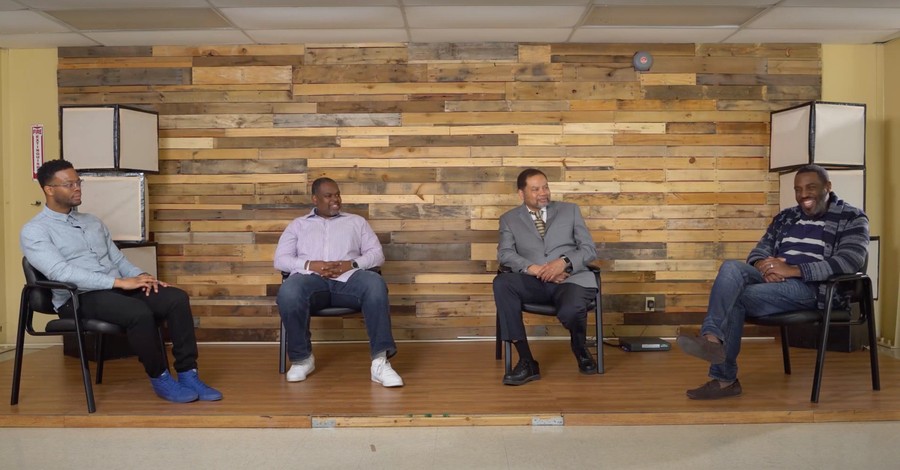
Although numbers are still being tallied, one thing is clear, in states like New York, Louisiana, and Illinois, among others, the black community has suffered significantly in the wake of COVID-19.
Christian Headlines recently assembled a group of Black Community experts to discuss the matter.
Sitting together in a room at least six feet apart from each other, BJ Thompson from BuildABetterUs.com, Pastor Emory Berry of Greenforest Community Baptist Church, Neonatal doctor at Grady Hospital in Atlanta, Dr. George Buggs and Terrence Albritton, a financial advisor, came together to speak about the effects the coronavirus is having on the black community through the lens of their shared faith in Jesus.
Many people may know how the virus came to America, but for some, it may be surprising to see how African Americans are being affected disproportionately.
"We knew from watching the cases in China and Italy that pre-existing conditions like diabetes, hypertension, obesity, lung diseases, and smoking cigarettes makes the mortality rate much higher and unfortunately the black community struggles with some of these issues to a larger degree," Dr. Buggs shared.
While all of the men in the room understood what Dr. Buggs was saying, they also agreed that it doesn't have to be this way.
“In a lot of ways, [the higher mortality rates among the black community] is something that occurred because of history … of economic disparity, the way that we even interact with the medical and health system. There’s a result of distrust and there have been things that have happened over time that have gotten us to this point,” Thompson, who runs a health and wellness organization, started.
“I think in a lot of ways, we just have to admit that environmental racism that placed projects over chemical plants, caused people to have asthma and all of these different variables, that in some ways, it’s not your fault,” he continued.
“But I think in the other regard is the truism of recognizing you can do something, has to be a part of your narrative.”
Thompson asserted that the first steps for people of color to take in order to reclaim the authority over their own health is taking practical steps and shifting their mindsets.
“You have to say to yourself, ‘I’m deciding to live differently,’” he added.
Pastor Emory Berry also believes that not only do people have to start where they are but, churches, too, have to start where they are by assuming its role in helping the black community through this troubling time. He believes the black church is at the forefront of this issue by continuing to preach hope and being the central place to assimilate credible information to its people.
“I really see the black church are really on the forefront. We have a long history as African Americans to have a strong religious and faith tradition whereby the church has been a centerpiece, if you will, for a lot of the functions in our lives. So, I think the trust of the black church still exists and so, naturally, we get an opportunity to interact with people from all walks of life,” Berry said.
“One thing that this pandemic has done, it has leveled and equalized the playing field so the haves and the have-nots, to some degree, have the same potential for exposure … One of the things I believe the black church can do, first and foremost, is to continue to do what we’ve always done. Preach hope, keeping people’s eyes focused on God, but in the same breath I think that there are some very practical things we can do.”
Berry encouraged people to listen to the advice of health officials and to participate in social distancing and, if necessary, isolation. He also encouraged faith leaders in the black community to disseminate pertinent information to keep their communities informed on current events regarding the virus.
Every one of the men in the group would admit that in terms of the black community, there are a number of reasons why the mortality rate is high and that some of the issues aren't just health-related. Finances also play a large part of the issue.
Terrence Albritton shed some light on the impact financial disparity could have on the black community’s overall health and well-being.
Albritton shared that statistically many Black Americans lag behind financially, an issue that can result in a lack of access and distrust in the health care system.
Albritton believes that a practical step people of color can take right now, is to start where they are and with what they have. Albritton, who is an accountant, stressed, "Take what you have now financially and start where you are."
For all of the men in the room, they would agree that things look dire and the need is great. However, they would also stress that we have to look for solutions in solving the problems of the black community. With hope and practical solutions, all things are possible for a brighter future in Black America.
Photo courtesy: Seattle Video Productions
Video courtesy: Seattle Video Productions










